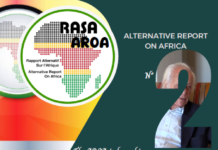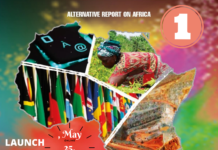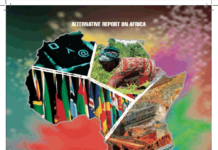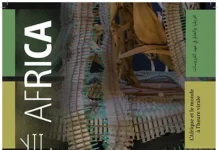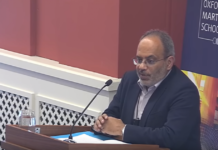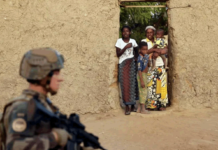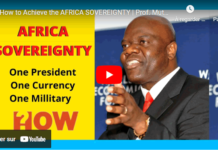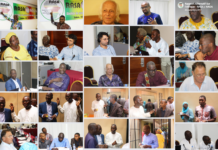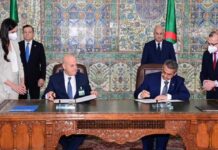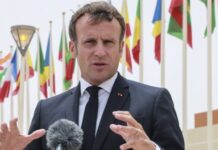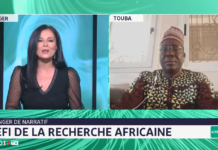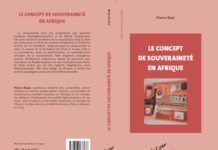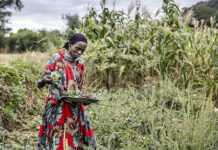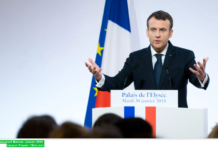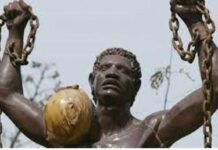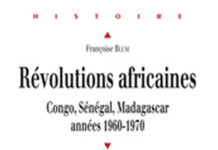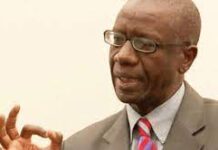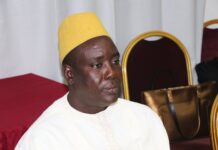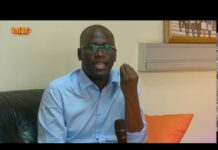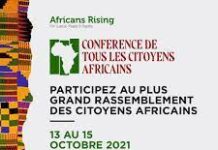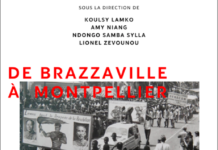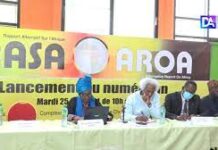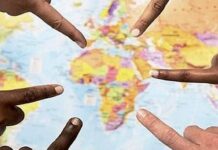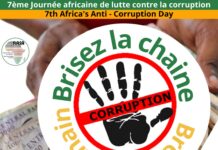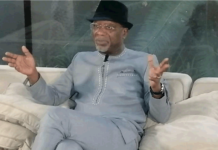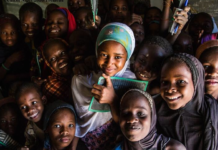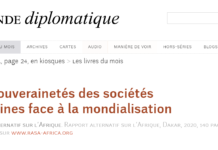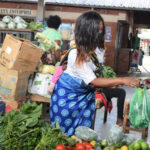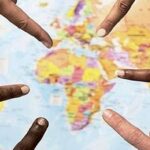For a long time, the African continent could write or speak, but was not heard. Today its voice, its voices, want to get out of a sterile face-to-face with the West and weigh to invent tomorrow
The novel Americanah by Nigerian Chimamanda Ngozi Adichie (Gallimard, 2015) has been translated into some 30 languages. After taking over the legendary Collège de France in 2016, Franco-Congolese writer Alain Mabanckou has just entered the Petit Larousse. In his book Afrotopia, published last year, (ed. Philippe Rey), the economist and writer Felwine Sarr asserts that Africa is the continent of alternatives. His essay is currently being translated for the United States and Italy. As for Cameroonian historian Achille Mbembe, the author of Politiques de l’inimitié (La Découverte, 2016), he has become a globally recognized intellectual, teaching at both the University of Johannesburg and Duke University, USA.
For Sarr, 44, and Mbembe, 59, the reversal is there: « The most current critical thinking no longer comes from Europe. It is now Africa’s turn. (read their interview opposite). For them, long confined to an « out of world », Africa is on the contrary the place capable of producing a world discourse today. And they intend to promote it. « It is a total thought, mixing literature, philosophy, and more broadly the humanities and social sciences, » observes Jean-Pierre Bat, in charge of Africa studies at the National Archives (1).
Two main lines of thought bring together authors from the continent or its diaspora: to create a way of thinking without borders – since history has made Africans, often unwillingly, a people who have migrated to all continents; and to stop thinking in relation to Europe. « It is a question of getting out of a sterile face to face with the West, of making a statement that does not aim to respond to insults, contempt or civilizational injunctions, confirms the writer Léonora Miano, born in Cameroon. It’s about setting up an original model of civilization. »
These intellectuals and artists, those of French expression in particular, recognize and sometimes support each other, writing or speaking in several voices. This was the case last fall, with the first edition of the Workshops of Thought, organized in Dakar by Felwine Sarr and Achille Mbembe to « revive a critical thought that would not be satisfied with lamenting and persiflage. A collective book, Ecrire l’Afrique-Monde (Writing Africa-World) has just been published, restoring the richness of the debates (ed. Philippe Rey-Jimsaan). The Senegalese philosopher Souleymane Bachir Diagne met Alain Mabanckou, the historian Mamadou Diouf and the young economist Ndongo Samba Sylla. « During the debates, young people challenged the older ones by asking if it wasn’t time to put an end to Césaire’s concept of negritude – we must dare to attack such a myth, » praises political scientist Françoise Vergès, a specialist in the notions of gender and race and author of Le Ventre des femmes (Albin Michel, 2017). The exhaustion of the ideals carried by the decolonial movements also allows new utopias to emerge. Productivism, development no longer arouse the hope of African populations. » Great awakening of African thought? Africa has never stopped thinking, » says French political scientist Jean-François Bayart, a professor at the Graduate Institute in Geneva. The 1950s were a golden age, with Frantz Fanon in particular. It continued after independence with authors like Ahmadou Kourouma and Sony Labou Tansi. The particularity of the current generation is to be postnational rather than postcolonial. It has emancipated itself from nationalist ideology and has kept only the best of postcolonial studies. »
The singular history of Africa – at the heart of all the vicissitudes of history but always presented as a continent on the margins -, allows her today to postulate as the best analyst of the contemporary world. Very old on the scale of humanity and very young in terms of population, Africa has not locked itself into the linear temporality of progress, » analyzes researcher Françoise Vergès. In order to know, the West has always wanted to list everything, to master everything, tortured by the fear that something will escape it. Africa admits opacity, invisibility, incompleteness. At a time of ecological disaster and predatory capitalism, this can upset contemporary thinking. »
Calixthe Beyala, Léonora Miano, Ken Bugul, Fatou Diome… the characters of these novelists of the diaspora show official borders « denied, erased, transgressed, defeated by forced passages, noted Benaouda Lebdai, a specialist in African literature, during the Workshops of Thought.
Diaspora writers are the precursors of a new world that would place Africa at the center of power issues. » Migrants aussi, les chercheurs. « In the image of the 21st century, African thought is connected, mobile, as evidenced by the trajectory of Mbembe (Cameroon, France, United States, South Africa) which transcends post-colonial cleavages, » reports historian Jean-Pierre Bat.
Achille Mbembe dreams that « the Africanization of the planetary question » will perhaps be the major event of the 21st century. Not everyone shares his enthusiasm. If places are emerging on the African continent – Felwine Sarr’s Athena bookstore in Dakar, art centers like Doual’art in Cameroon or RAW Material Company in Dakar, magazines or blogs – many are still economically very fragile. « African universities lack resources and cannot avoid the brain drain, and the book market remains poor on most of the continent, » notes French historian Pierre Boilley, a specialist in contemporary sub-Saharan Africa at Paris-I.
Léonora Miano will publish Marianne et le Garçon noir (Marianne and the Black Boy), a collective book on the experience of black men in France, in September. « The media exposure that some intellectuals of sub-Saharan descent enjoy in France today sheds light on the backwardness and shortcomings of the Hexagone, she believes. This does not mean that the words of these authors are validly taken into account and become a tool for transformation. We are entertained by listening to them for the time of an interview, we pick a sentence or two from their writings, appreciated because they carry a promise of redemption. » But Europe may not really have a choice. It will have to put itself, modestly, at the school of the world, according to Achille Mbembe. « Like all of us, on all continents. It is a matter of survival. »


